Share
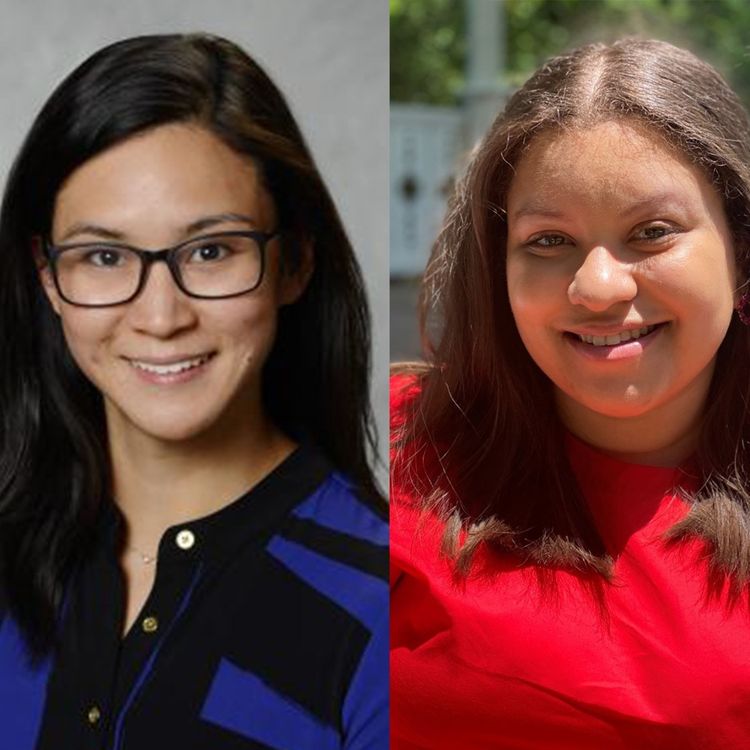
Michigan Minds
How Active Shooter Drills Affect Students
Season 3, Ep. 22
•
In this episode of Michigan Minds, Tammy Chang, an assistant professor in the Department of Family Medicine at Michigan Medicine, and N’dea Moore-Petinak, a doctoral candidate at the U-M School of Public Health, discuss the findings of the national poll they conducted that show active shooter drills in schools have a negative effect on students’ emotional health and yield questionable results.
More episodes
View all episodes
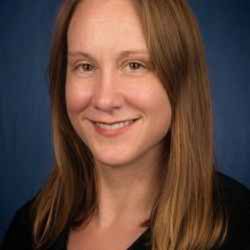
11. How to make your holidays less wasteful and more joyful
22:34||Season 9, Ep. 11Shelie Miller, a professor in the University of Michigan's School for Environment and Sustainability and co-director of the Center for Sustainable Systems, spends a lot of her time in the weeds detailing the environmental impacts of our everyday choices.But people wanting to live more sustainably can make the most meaningful gains by focusing on three big-picture categories, she says: food, transportation and energy usage. That's no different during the holiday season—except for that it's a time with a unique emphasis on feasts, travel and spending time with friends and family in cozy quarters.Miller joins the Michigan Minds podcast to talk about taking on these big themes during the holidays without giving up our traditions or stressing over "green herrings" that aren't as sustainable as you might think.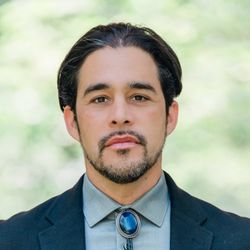
10. Immigration raids lead to uptick in absenteeism and lower grades
19:53||Season 9, Ep. 10William Lopez joins the Michigan Minds podcast to discuss his findings on the effects of immigration raids, offering insight into how intensified enforcement efforts shape the well-being and resilience of students and their communities.Michigan Minds is produced by Greta Guest and hosted by Michigan News staff. Jeremy Marble is the audio engineer and Hans Anderson provides social media animations. Listen to all episodes of the podcast.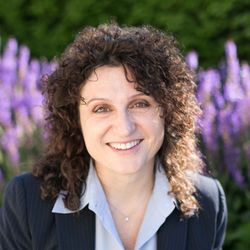
9. Semiconductor manufacturing on the rise in the United States
19:11||Season 9, Ep. 9Valeria Bertacco, the Mary Lou Dorf Collegiate Professor of Computer Science and Engineering, joins the Michigan Minds podcast to talk about semiconductors – how ubiquitous they are in our lives, why manufacturing moved overseas, and what it will take to produce them in the U.S.Bertacco's research explores hardware solutions for next generation computing and security. She is also the vice provost for engaged learning at the University of Michigan, supporting international partnerships and initiatives.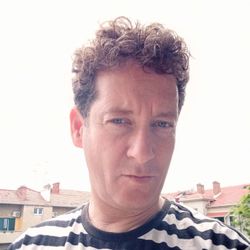
8. Hands on Makerspace builds confidence, opens opportunities for youth
21:22||Season 9, Ep. 8Nick Tobier, professor of art and design at the Penny W. Stamps School of Art and Design at the University of Michigan, focuses on collaborative projects in the public realm and the potential of public spaces.Nick is also the co-founder of the Detroit-based Brightmoor Makerspace, in partnership with Detroit Community Schools. Utilizing the ideals of the Waldorf method—learning with your head, heart and hands—youth and adults build their practical making skills, incubate business ideas and gain creative confidence.Through their federally funded "Neighbors Pavilions" project—houseless porches, originally created as outdoor classrooms during Covid, turned into public community spaces—the Makerspace was invited to present at the U.S. Pavilion at the Venice Architecture Biennale. In November, Tobier and two students from the Makerspace will speak at the closing ceremony of the international festival for some of the greatest architectural minds in the world.What are some of the skills that participants get to use at the Makerspace and what are they primarily working on?So we are in some ways, at times, what I would describe as 'militantly low tech'...we do a lot with our hands. We do a lot with power tools, honestly, like things that you could chop your fingers off with if you wanted to, but in some ways, straightforward dimensional lumber. So we build a lot of furniture. We built some living edge tables. We upcycle fashion right now, so there's a lot of tie-dying, screen printing, jewelry. We've gone from furniture to things that are approaching tiny houses, which is our next, I don't want to say frontier because that sounds too colonial and western expansion, but we've built things that you could live in. So although we build furniture and we do a lot of woodworking, I always say we're not training woodworkers, but we're building creative confidence. So if you use a chop saw for the first time or something you were scared of, you think 'Oh, it's possible I can do something that I didn't think was possible,' and then, 'What do I want to do with my life?' rather than 'What am I left with because that's what's open to me?'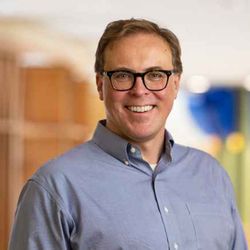
7. Health and health care's influence on political engagement
20:15||Season 9, Ep. 7Scott L. Greer, a professor of health management and policy and of global public health in the University of Michigan School of Public Health and a political science professor, shares decades of studies documenting the shaping of political engagement and poor health and negative health care experiences.Greer joins the Michigan Minds podcast and discusses the ways politics and public health are colliding to affect vaccines, preparedness to fight the spread of contagious disease, humanitarian outreach and HIV/AIDS programs.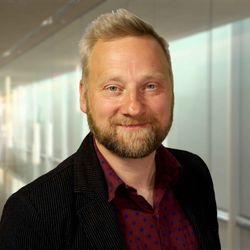
6. All about Lesotho, a vibrant country caught up in a trade war
21:35||Season 9, Ep. 6Archaeologist Brian Stewart, associate professor of anthropology at the University of Michigan, has conducted research in the small southern African country of Lesotho for 15 years. There, he is investigating the world's earliest evidence of human behavioral complexity: the behaviors, actions and beliefs that make us human. Through his work, Stewart is hoping to understand how humans developed the ability to quickly adapt to a range of environments. Lesotho, with high mountains and extensive deserts, provided an ideal system in which people could test their ability to adapt and survive.Stewart joins the Michigan Minds podcast to talk about his experience with Lesotho, and how President Trump's recently announced tariffs could impact the country.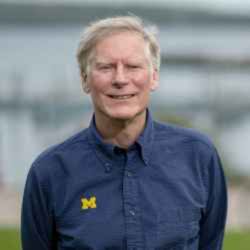
5. Reasons for hope amid grim climate news
22:58||Season 9, Ep. 5Climate expert Jonathan Overpeck, dean of the University of Michigan School for Environment and Sustainability, does not sugarcoat things.The words "scary," "depressing" and "devastating" come up when he talks about the impacts of climate change, including record warmth and drought conditions. But he also doesn't ignore how communities across the country and around the world are finding ways to reduce their greenhouse gas emissions and fossil fuel consumption.Overpeck joined the Michigan Minds podcast to discuss recent trends in climate news—both good and bad—and what people can do to stay resilient.Do you have advice for people who are feeling climate anxiety and ways to cope with that?We get that question a lot from students, but I think also fellow faculty. These are tough times in terms of what's going on in Washington, what's going on in our global climate. There are a lot of other things going on that we worry about, so I think what's important is to figure out ways to be resilient. And one of the ways is to really reach out to your family, friends and community to get the support you need. Another is to find things you can do. And there's so many things you can do.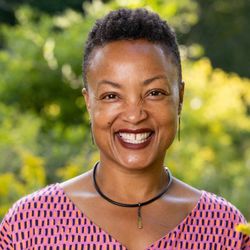
4. Investments in climate change mitigation not being felt yet
22:57||Season 9, Ep. 4Shalanda Baker is the University of Michigan's vice provost for sustainability and climate action. She joined the Michigan Minds podcast to discuss the opportunities and challenges that lie ahead.How does the current political climate affect what we're doing here at the University of Michigan with regard to sustainability and climate action?I am so laser focused on climate action and sustainability. I think the science is clear. We're in an emergency. We are in the last decade of action. We only get one life, and so in my life, I've decided to be of service, whether that be as a military officer, which I've done, as a professor, or a civil servant, which I also did, and now here.We're doubling down on making clear what the science is and what the urgency is.Now, as we communicate that more broadly, we absolutely have to connect the dots. I think one of the reasons why the arguments being made by the current administration have been so powerful and connected with people is that the investments that we were making to mitigate climate change were not being felt yet.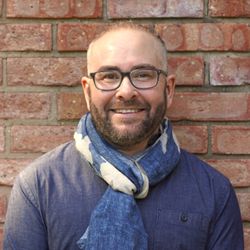
3. Oliver Haimson talks about the changing social media landscape
21:51||Season 9, Ep. 3Welcome to the Michigan Minds Podcast, where we explore the wealth of knowledge from faculty experts at the University of Michigan. I'm Jared Wadley, a lead public relations representative for Michigan News. Today I'm speaking to Oliver Haimson about the changing social media landscape. He's an assistant professor in the School of Information and the Digital Studies Institute. Oliver's research focuses on social media content moderation and marginalized populations, as well as the changing identities on social media during life transitions. Thanks for being here, Oliver.Oliver Haimson:Yeah. Thanks so much for having me, Jared.Jared Wadley:Before we get into the topic, tell the audience a little bit about how you became interested in studying social media.Oliver Haimson:Yeah. I mean, I think I started where most people start, which is I was really interested in social media myself. It was I guess the early 2010s when I started doing research in this area, and as a social media user, I was just fascinated by the ways that people were using it to mostly talk about more sensitive content, how people were thinking about disclosure and how they were presenting their identities on social media. So it really came from this personal perspective. But I think in a lot of cases, social media researchers as they start to learn more about the space end up using social media less themselves. So I would say that nowadays I'm not the biggest social media user, but I am still really fascinated by it from a research perspective.